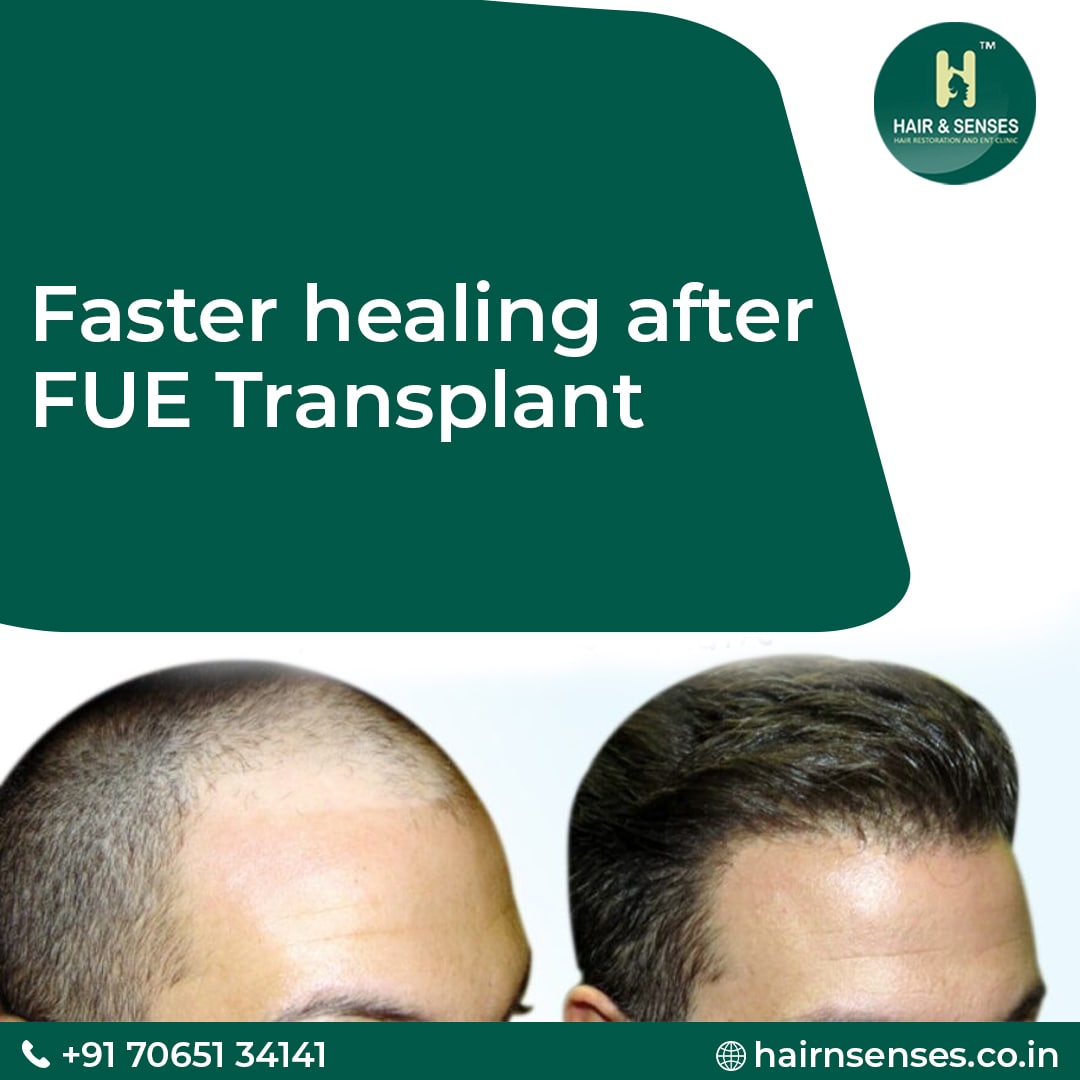Faster healing after FUE Transplant
April 29, 2019 | By Dr. Sangay Bhutia (Hair Transplant Specialist in Delhi)
Over the years, Follicular Unit transplantation or (FUE) has changed millions of lives. It is perhaps the best thing that has happened to people suffering from Androgenic Alopecia or Male Pattern Baldness. Sure, there were hair transplant methods before FUE, but none as effective, natural, and as easily available as FUE is.
FUE is a minimally invasive procedure, however, like all surgeries, there is a healing period and recovery time. The patient is usually allowed to leave the clinic on the same day after the surgery, once the anaesthesia wears off. However, the healing period is about a week to 10 days. Since the procedure involves extracting hair follicles from the donor areas of the scalp using micro-punches, it leaves tiny, dot-like scars, redness and some swelling.

Here are some tips that can help the patients heal faster after a FUE procedure:
1. Avoid alcoholic drinks and smoking
Alcohol and cigarettes can both slow down the process of healing. Smoking or consuming alcohol can restrict the supply of oxygen to scalp, and therefore the implants, which is very crucial during the recovery period. Patients are advised to refrain from both smoking and drinking after the transplant to achieve the best results and the desired look.
2. Avoid excessive exercise
Patients can go about their day-to-day and even do light exercises after the surgery. However, going to the gym, playing sports, especially contact sports, is not advisable. Too much exercise and the sweating caused by it can increase the risk of an infection. There is a risk of dislodging the grafts if you play any kind of contact sports.
3. Other things to avoid:
• Very hot baths
• Swimming pools, to avoid infections
• Brushing your hair for some time, as well as dyeing, hair products or hair styling tools
• Prolonged sun exposure
• Using fingernails to scrub your scalp while washing your hair
• Resist the urge to touch or scratch your scalp
4. Doctor knows best
The surgeon will give a set of guidelines for post-operative care, and medicines for the patient to take post the surgery. The care program has to be followed religiously to avoid infections, reduce swelling and to keep the implants healthy and help them adapt to their new place. The antibiotics are also to take care of post-operative swelling and avoid infections. Some clinics will also offer a personalised aftercare regimen. The post-operative care is as important as the surgery itself to achieve desired results.
5. Healthy Diet
Patients must avoid spicy foods, and eat a healthy, balanced diet post a transplant. Add foods rich in iron, zinc, protein, and vitamin B12 to nourish the implants and boost hair growth. These nutrients can be found in eggs, fish, beans, nuts, and lean meats. Seasonal vegetables and fruits are also good for your general well being and are beneficial for your hair.
Most FUE patients will have work to get back to, but taking a few days off can help them take care of themselves and relax while the post-operative swelling subsides and the redness dissipates. Light meditation or a quiet holiday can be a good idea to keep the work stress away for a few days while the transplant heals.
